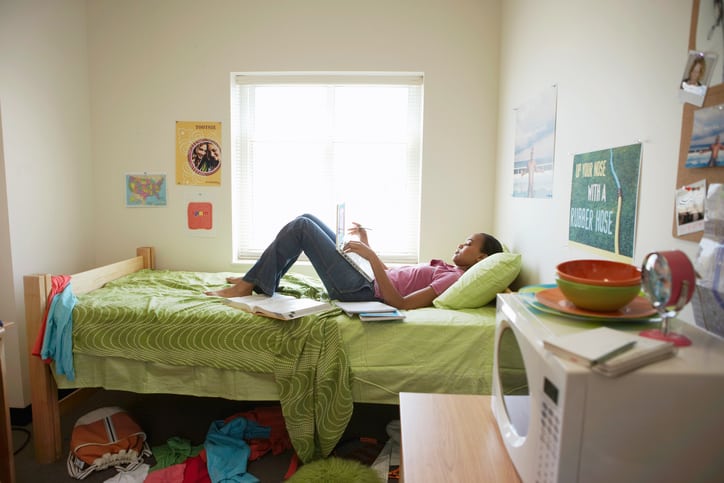Living On Campus Versus Off Campus – How to Decide
You chose the university of your dreams and you have your acceptance letter. Congratulations! Now there’s just one more big decision to make before you start earning your degree in the United States — will you live on campus or off campus?
Some schools require that international students live on campus during their first year. Others let students decide where to live.
“Living on campus the first year at university is one of the most beneficial and exciting things about becoming a college student,” says Jason Vokral, Student Services Director for the International Accelerator Program at the University of South Carolina.
But if you’re a second-year student or a first year-student at a school that doesn’t require you to live on campus, you’ll need to decide where you want to live.
Each choice brings with it pros and cons. Living on campus gives you easy access to school amenities and the campus community, making it easier to get around, to use school facilities, and to attend classes and special events. On the other hand, living off campus gives you more freedom and more responsibility.
Here are some key points to consider when deciding whether to live on campus or off campus:
Space and Privacy

“Living at a campus housing community allows you to integrate with other students from the U.S. and beyond who are going through the same life changing experience you are,” Vokral says. “Students consistently tell me the years they live at a campus housing community are filled with the best memories.”
Of course, being surrounded by people all the time can be overwhelming if you’re not used to it. If you need a lot of space and privacy, off-campus housing might be right for you. However, if you prefer a close-knit community of friends and fellow students, you might want to live on campus.
The cost of housing
When comparing the cost of renting off-campus housing to the cost of living on-campus, make sure you take all variables into account. When you sign a lease for an apartment, for example, you’re usually agreeing to pay rent for a year. So if you live off-campus you’ll be expected to pay rent for 12 months even if you go home for three months over the summer.
When you live off campus, you also need to pay for utilities like internet service and electricity that are not included in your rent bill. You may also need to buy furniture or pay extra for a furnished room, apartment, or house. Parking, transportation and food bills can also add up quickly.
Convenience
When you live on campus, your first class of the day is just a short walk away. If you live off campus, you’ll need additional travel time since you’ll be using a bus, subway, or other means of transportation. Living off campus puts you farther away from dining halls, the library, the gym and other campus amenities.
However, an off-campus apartment may put you closer to grocery stores, shopping and off-campus entertainment options.
Make a plan for your housing
Whichever choice you make, plan ahead. While many schools guarantee housing for first-year students, by the second or third year, you will need to plan ahead to get the kind of housing you want.
If you choose to live on campus the first year, stay alert to opportunities off campus. Explore nearby neighborhoods to find one you might like to live in. Talk to other international students about their experiences living off campus.
Many international students enjoy the convenience and community of living on campus so much that they want to keep doing it. If you want to continue living on campus after your first year, let the school know as soon as possible. Housing for upperclassmen can fill up fast.
Plan ahead, and make the choice that’s right for you.

